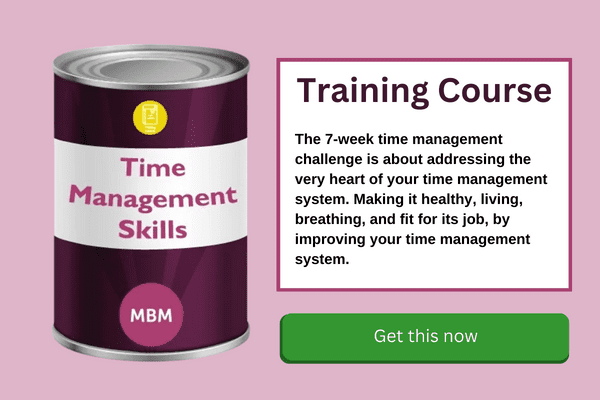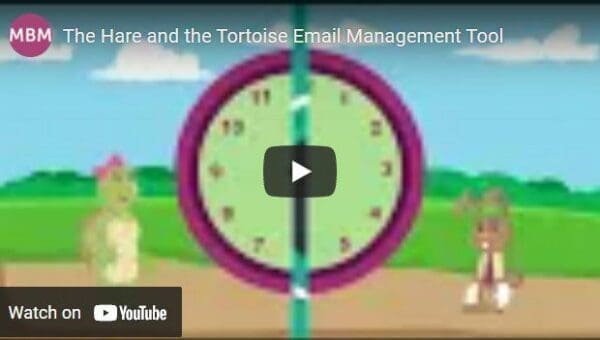Become a Highly Effective Time Manager
Stephen Covey wrote an amazing book called, ‘7 Habits of Highly Effective People‘, which was based on his research into the habits of highly effective people. As you can see above, each habit helps us to identify how we can change the way we work to become more successful. For example, Habit #2 ‘Begins with the end in mind’. It is where Stephen helps us to focus on what we want first before we ‘get stuck in’.
On the same theme here are ‘7 Habits of Highly Effective Time Managers’, taken from working with thousands of learners over the past decade, helping them to create effective time management habits:

Habit #1: Long Term Perspective
The most effective time managers are those with long-term perspectives. This is unlike many people who are working hard every day. Or working excessive hours. Or do not know what they really want to achieve, other than a vague notion to do well.
Dave Allen, the Time Management expert, talks of the various levels of long-term perspective. The chart below gives you an idea of those levels and the challenge that effective time management becomes – see effective time management. Especially when you understand that long-term perspective is way beyond just delivering the day-to-day. These levels encourage us to consider our goals beyond a year and ultimately for life.

Habit #2: A Daily Plan
There are 4 groups of time managers, as far as the daily plan is concerned. Those that; 1. create a plan each day, or the night before, and stick to it, 2. create a daily plan & mostly ignore it, 3. convince themselves that they have a daily plan but it is more of a continuous list of tasks, and 4. do not write a daily plan.
The most effective time managers are those that write a plan the night before. Those that make conscious choices about how they will spend their time at work the following day. Their plan works towards their long term perspectives. And it is also flexible enough to allow changes through the day. And that is without throwing them too far off course. The other 3 groups are not working towards their long term perspectives because they have not made conscious choices about what they will do that day.
Habit #3: On the Payroll?
Of the levels of long term perspectives the key work goal is to know why we are on the payroll, which falls under ‘area of responsibility’. Working with many learners during our Time Management Training we ask them ‘Why are you on the payroll?’ and many respond with a long list of items of what they do at work.
The answer is much simpler. In any commercial organisation the answer needs to have a strong link to a sales or profit number because if those people are not employed to make money for the business then what are they there to do? We know that in some functions this is more challenging to identify, but it is still vital to know what part they play in delivering the financial performance of the business.
Sticky Learning ® is 7 times more effective than 1-day training courses. Plus, you will get a Chain of Evidence proving your Return on Investment. Discover soft skills training that changes behaviours long term.

Habit #4: Steering the Wheel
We use a car metaphor to describe a time management system. The steering wheel of this car is the project list. Few people have a project list and even fewer have a ‘living and breathing’ project list. A project list is essential because it enables the time manager to identify what big things are being worked on and then to choose from those things, which of them will ultimately deliver why we are on the payroll.
Habit #5: Manage Email Effectively
Email overload is one of the most challenging things for any time manager. The average worker spends over 11 hours per week managing email and this number will increase by +6% per year. This means that in 5 years the average time manager will be spending over 15 hours per week managing email. Many people start their day with the best intentions to start a big project, ‘nail’ the customer presentation and ‘get some decent work done’. They then look up at 3pm and wonder where the day has gone because they ‘just wanted to check their email’.
An effective time manager checks their email 3 times per day and has a time management system that supports quick decisions about emails. This is achieved by having the appropriate parts of a time management system in place, e.g. ‘Remind me in 3 weeks’ and trust that the system works to remind them in 3 weeks. If there is no system and/or no trust the time manager reverts to living in their inbox to avoid missing something.

Habit #6: Evolve Your System
Some learners that we train have had the same time management system for over 10 years, if not 20 years. They have never mapped it, challenged it or changed it. By their own admission they know it could be better, yet they were ‘too busy doing the job’. In the ‘7 habits of highly effective people’ Stephen talks in habit #7 about ‘Sharpen the Saw’, where a lumberjack is too busy sawing with a blunt saw to stop and sharpen his saw.
The simple and effective tool to adopt in our time management system is a weekly review. Taking 15 minutes at the end of the week to identify what went well and what could have gone better. So that we can make the following week just that little bit better. A 0.1% improvement per week will equal 1,004% improvement in 10 years!

Habit #7: Time Management Student
Of all the skills we need to have, develop and constantly evolve, like People Management Training, Strategic Thinking, etc., time management is the ultimate enabler because without it little else is possible. Becoming a student of time management is about committing ourselves to learning all there is to know about time management, from books, from blogs, to sharing with colleagues, to seeking out hints & tips, to becoming tech savvy, and so on.
By becoming a student of time management time managers can look back at their career knowing that they spent their time the way they wanted to and not the way they ‘fell into’. Subscribing to a podcast, or reading a book about time management, is a better investment in skills development than any other because time management is the skill that ‘unlocks all other doors’.
In Summary
The 7 Habits of Highly Effective Time Managers are:
- 1: Long Term Perspective
- 2: A Daily Plan
- 3: On the Payroll?
- 4: Steering the Wheel
- 5: Manage Email Effectively
- 6: Evolve Your System
- 7: Time Management Student
Which habit do you need most adopt?
Action: For even more useful content on time management, check out our ultimate guide on Time Management skills.




